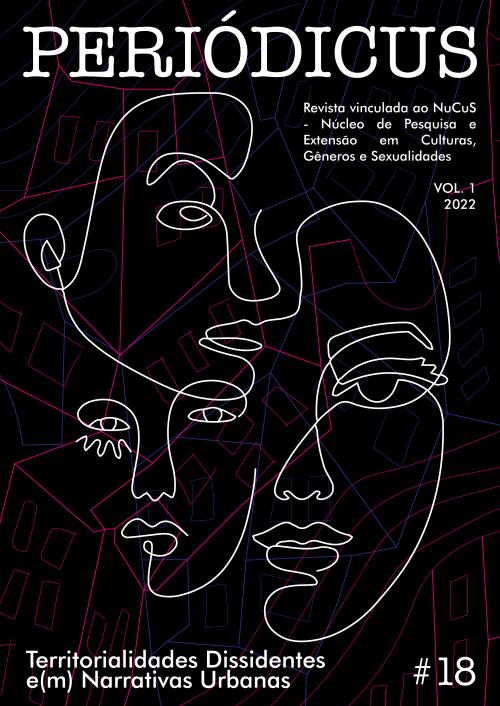From closets to basements
the collective memory of dissident bodies in public spaces
DOI:
https://doi.org/10.9771/peri.v1i18.50132Abstract
This essay proposes to guide the occupation of urban territory by LGBTQIA+ people, as well as to question the conditionalities of the right to the city for those who are sexual and/or gender dissidents. The monstrification of subalternized bodies is not a recent practice, but a direct inheritance of the colonization process that attributed – notably to black and indigenous people – the sub-human status as a destructive prerogative. From this, I discuss how the insertions and purges of LGBTQIA+ bodies from the urban space take place, placing this discussion specifically in the city of Salvador, Bahia, from establishments aimed mainly at the lesbian and dyke local population. With the portrait of the bars Caras & Bocas and Sapoti, I question the visible and invisible geographical barriers that vilify the right to public affection and to dissident collective memory, built from and by means of socialization spaces compulsorily boycotted by heteronormative civil society.
Downloads
Downloads
Published
How to Cite
Issue
Section
License
Copyright (c) 2022 Camila Daltro Ferreira

This work is licensed under a Creative Commons Attribution-NonCommercial 4.0 International License.
Autores que publicam nesta revista concordam com os seguintes termos:
Autores mantêm os direitos autorais e concedem à revista o direito de primeira publicação, com o trabalho simultaneamente licenciado sob Licença Creative Commons Attribution Noncommercial que permite o compartilhamento do trabalho com reconhecimento da autoria e publicação inicial nesta revista, sendo vedado o uso com fins comerciais.
Autores têm autorização para assumir contratos adicionais separadamente, para distribuição não-exclusiva da versão do trabalho publicada nesta revista (ex.: publicar em repositório institucional ou como capítulo de livro), com reconhecimento de autoria e publicação inicial nesta revista.
Autores têm permissão e são estimulados a publicar e distribuir seu trabalho online (ex.: em repositórios institucionais ou na sua página pessoal) a qualquer ponto antes ou durante o processo editorial, já que isso pode gerar alterações produtivas, bem como aumentar o impacto e a citação do trabalho publicado (Veja O Efeito do Acesso Livre).







